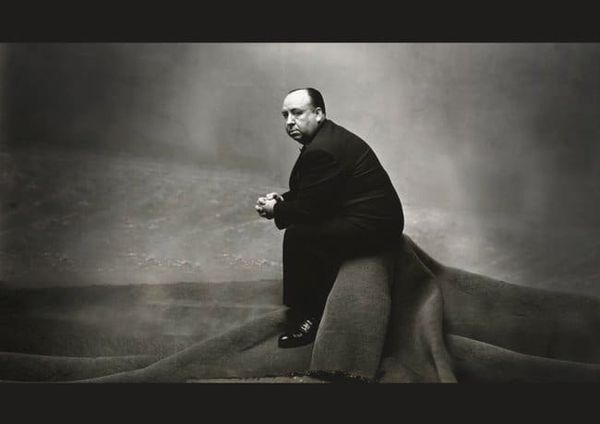Eye For Film >> Movies >> My Name Is Alfred Hitchcock (2022) Film Review
My Name Is Alfred Hitchcock
Reviewed by: Jennie Kermode

Alongside his filmmaking career, Alfred Hitchcock enjoyed considerable success as a presenter of other people’s work, his distinctive voice and dry sense of humour attracting an additional set of admirers. He also delighted in pranks and disguises, with cameos in his films which, despite his size and shape, are not always easy for the untutored eye to spot. It seems fitting, then, that he should take his turn being impersonated in this documentary about his work, which screened at the 2023 Glasgow Film Festival. It’s a change of pace for director Mark Cousins, but detailed in a way both men would appreciate. The maestro’s vocals are here provided by Alistair McGowan.
This is very much a film about filmmaking – not the production, not the actors and associated gossip, but the experience of constructing a film on storyboard and set, building it up shot by shot until it becomes more than it first appeared to be on the page. This is, after all, where Hitchcock really excelled. Other stories are present, but all in service to this art. Even Hitchcock’s relationship with his wife was founded on her abilities as a scriptwriter and editor. His words about her, along with his various anecdotes about other people, are drawn from his writings and interviews, though with some artistic licence taken.
Cousins avoids repeating what other critics and film analysts have said a thousand times before by drawing out themes which can be traced back to Hitchcock’s frequently neglected early works, including the silent ones. There’s little direct comment on changes in technology but savvy viewers will observe their influence as we go. A focus on Hitchcock’s control of form and, in due course, colour, is illustrated in a way which lets us observe the development of his technique. Similarly, Cousins explores his use of height and his layering of time, the latter illustrated with clips from Rebecca – Daphne du Maurier, of course, did the same thing.
There are some nice little jokes made in passing here, such as the reduction of Maxim de Winter to ‘Rebecca’s husband’, and Cousins knows his stuff when it comes to shots. He’s a little less successful in addressing themes, some of which are far too obvious, some inadequately substantiated. In other cases, such as the theme of escape, the main argument is successful but there’s rather too much reaching in trying to explain it, and the why is a lot less interesting than the how.
Though it is sometimes pleasingly witty, Hitchcock’s style of presentation becomes a big grating towards the end of the film, and a section addressing the semiotics of desire is somewhat uncomfortable. The world has moved on since actresses who worked with him began speaking out, and it’s likely that they would be taken more seriously today, so the idea of having him – even through a stand-in – discuss them unchallenged is perhaps an indulgence too far. There ought to be room to reflect on his genius without, in effect, downplaying the way he treated some of his stars.
Early material aside, seasoned Hitchcock fans won’t find all that much that’s new here. It’s a valuable introduction for newcomers, however, who will also get to learn a few things from McGowan’s performance. He’ll lie to us just once, he says, but he lies to us twice. He’ll reveal one of the instances at the end. See if you can spot the other one.
Reviewed on: 02 Mar 2023














